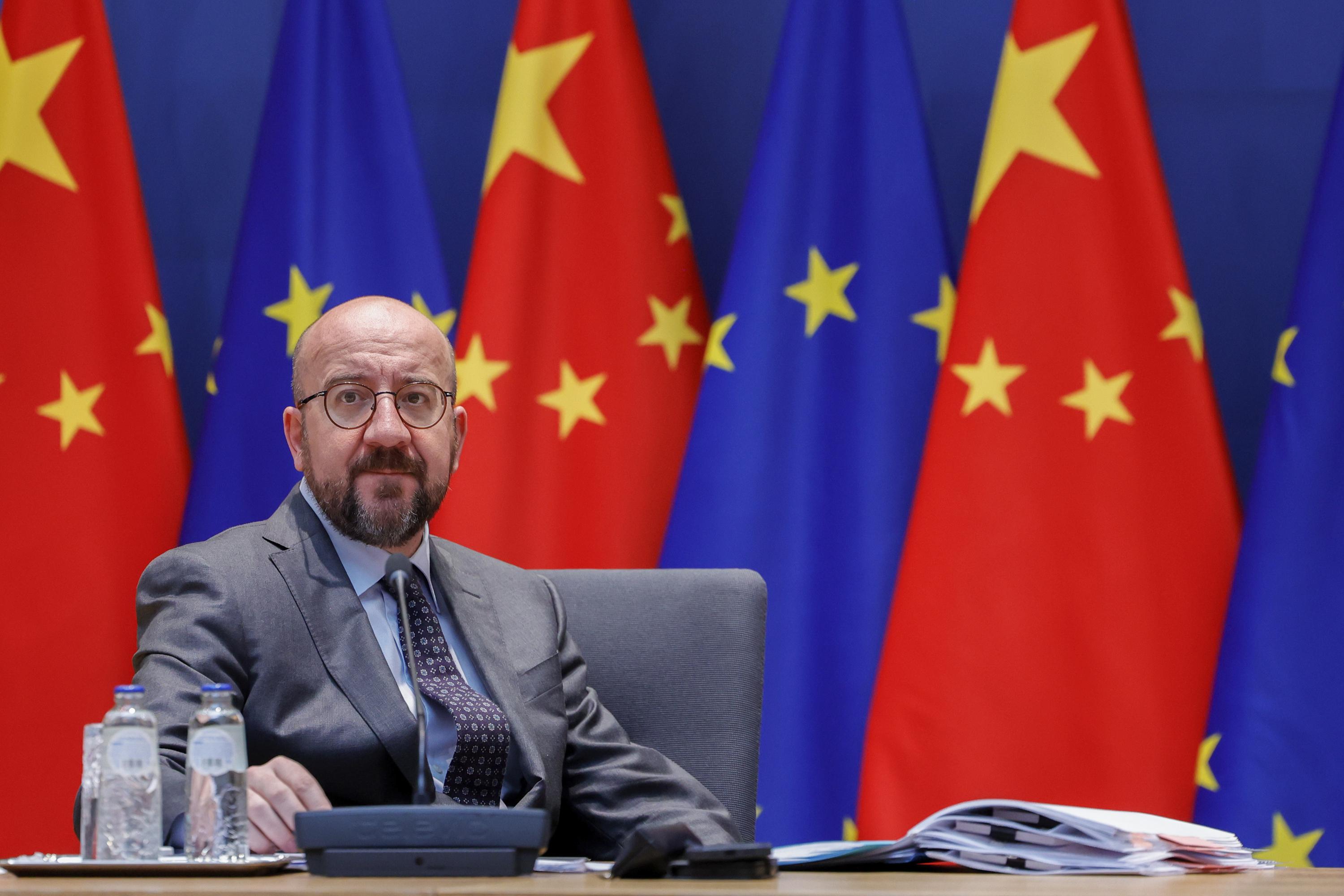European Council President Charles Michel met Chinese President Xi Jinping in Beijing on Thursday, the first such meeting since the 20th National Congress of the Communist Party of China in October.

(File photo: AP)
Of the meeting Professor Zheng Chunrong, director of the German Studies Center at Tongji University in Shanghai, said Europe has realized decoupling from China is unrealistic and both sides will have to get a few things straight first to strengthen bilateral ties.
Describing China and the EU as two major forces maintaining world peace and advancing prosperity, Xi told Michel that China supports the bloc’s approach to strategic autonomy.
During the talks, Xi also expressed the hope that the EU institutions and member states hold a rational perception of China, properly manage their differences with China and the two sides push their cooperation to a higher level.
Zheng noted Michel’s visit came at a time when Europe is seeking to rebalance itself between China and the US.
“Members of the European Union are still at odds over the attitude towards China,” Zheng said. “The main purpose of Michel’s visit is to express Europe’s willingness to maintain contact and cooperation with China. It’s not feasible not to work with China.”
Zheng said Europe was aware that following US policy meant being forced to decouple from China.
“The pains felt from the energy squeeze and the Inflation Reduction Act introduced by the US have made Europe realize that an excessive reliance on America will further undermine its own interests,” he said.
The $369 billion green subsidies of the act reportedly raised frustrations among European officials that it was hurting the bloc’s industrial base and breaching international trade rules.
Some Europeans have also accused the US of profiting from the Russia-Ukraine military conflict by raising gas prices almost four times as high as the same fuel costs in America, a Politico article reported.
In November EU foreign affairs chief Josep Borrell said the bloc would not follow the toughest US policies on China in response to calls for a more aggressive approach to Beijing.
Zheng said both China and Europe agree that the Russia-Ukraine military conflict needs to be resolved peacefully as soon as possible and the possibility for deepening cooperation existed in trade, renewable energy, artificial intelligence, and digitalization.
The two sides also have shared interests in fighting climate change and the COVID-19 pandemic, he noted.
But Zheng warned both sides will need to enhance mutual political trust and manage differences by competing within a healthy range.
“Europe has launched several policies that deem China a systematic rival and abuse the concept of national security for some economic protectionist measures,” Zheng said. “Such practices will reduce the two sides’ mutual political trust and are not conducive to discussion about cooperation.”


